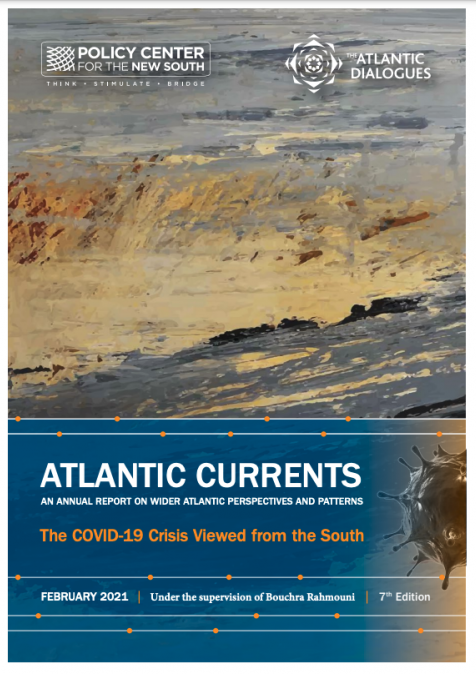Publications /
Opinion
Bushra Ebadi speaks fast, in an even tone and a very articulate way. This social innovator, a strong personality raised in Mississauga (Canada) by parents who fled their country, Afghanistan, has a lot to say and even more to do. Since July 2021, she is a Network Coordinator for Amnesty International. Her mission: “Establish through a collaborative process a global civil society network on data-surveillance technologies to promote the rights of displaced persons and migrants in the digital age”.
This is far from being her only activity. In March 2020, she co-founded the Health and Information Literacy Access (HILA) Alliance. Her organisation is in contact with key groups around the world including the WHO and UNESCO, developing strategies and programs to address infodemics, including disinformation on COVID-19.
“We apply decolonial, intersectional, and intergenerational approaches to improve access to credible and timely information on COVID-19 for systematically marginalized individuals and communities, including Indigenous and racialized people. Many communities lack meaningful and timely access to credible information and are hindered from making informed decisions on issues that impact their wellbeing. Young people have been especially mischaracterized throughout the pandemic and are wrongly seen as apathetic.” Besides conducting research and developing accessible information guides, HILA has organized webinars with diverse experts around the world on issues related to the pandemic, including mental health and empathy.
Transforming systems
Focused on “transforming systems and promoting human rights, peace, equity, justice, and sustainability through strategic foresight, interdisciplinary research, design and systems thinking, policy analysis, and storytelling”, Bushra Ebadi is a specialist in yet another list: “gender and youth mainstreaming, refugee rights, media and information literacy, technology ethics and futures”.
She is also, since October 2019 a Youth Ambassador for the UNESCO Media and Information Literacy (MIL) Alliance. Her experience includes being a Global Advisor in 2020-21 to the 33 year old Tunisian activist and diplomat Aya Chebbi, member of The Independent Panel for Pandemic Preparedness and Response, once again engaging with youth, refugees, and marginalized communities.
As a Research Associate at the UNICEF Office of Global Insight and Policy (OGIP), she worked on “ensuring insights from youth leaders, activists, and experts were mainstreamed into UNICEF’s report on Prospects for children : a global outlook through 2025”. She was also a consultant with Algora Lab and Mila Quebec Artificial Intelligence Institute, in 2020, co-leading deliberative consultations (Global Youth, Global Indigenous Peoples, and Subregional African) to ensure diverse communities were engaged in the development and review of UNESCO’s draft principles on Artificial Intelligence Ethics.
Human rights at heart
But who is Bushra Ebadi, beyond all the multitasking? She describes herself as a “dedicated, empathic, and creative” soul. An analytic mind finding in poetry “a joy that is rooted in my own Persian culture”.
Bushra Ebadi was always interested in peacebuilding. “Growing up as a first-generation Afghan Canadian, I was exposed to and learned about global affairs from a young age. Politics, Bollywood movies, and religion were all discussed at the dinner table. I grew up with an understanding that injustice and gender inequity exist in many different contexts. These issues transcend borders and are not relegated to one part of the world or a select group of people. They are systemic and represent a global challenge that we must address collectively”.
As a child, she wanted to become a human rights lawyer. She studied Political Science and Philosophy at McGill University, then Global Affairs at the University of Toronto. She is critical of “the tendency to romanticize refugees’ journeys after they have been resettled and not create the conditions to support and protect displaced people from the outset.”
When asked about the current situation in Afghanistan, she goes straight to the point. This is “complex and frustrating, with history repeating itself and so many groups providing opinions on topics they don’t have expertise on – creating false perceptions. She worries that in the face of converging crises, politicians around the world will increasingly scapegoat marginalized communities, to draw attention away from corruption and ineffective governance systems and policies”.
« Co-learning and creating, instead of competition »
Bushra Ebadi found out about the ADEL program through another alum. Leornado Parraga, one of her friends who she met at the 2017 UNESCO Youth Forum, recommended that she apply in order to mobilize people for collective action. It immediately interested her, as she is convinced that “solutions are rooted in communities and shifting and reimagining power so that it does not stay concentrated in the hands of a select group of people or industries”.
In the field of peacebuilding, she adds, “competition is not useful, whereas co-learning and creating are core values that ought to be nurtured and promoted. I loved meeting people in Marrakech and having interesting conversations with them on the bus or at dinners. This wider dialogue across the Atlantic is raising critical questions on whose existence, presence, knowledge, and experiences we value. It is really important to be supported and honoured in meaningful ways, and not tokenized”.
She sees the Policy Center’s initiative as “the beginning, as more needs to be done to create a space that is conducive to dialogue. It should be a priority on the African continent that discussions be led and addressed by people from the continent. Similar to my experiences with Afghanistan; many people talk but lack a nuanced understanding and don’t have to live with the consequences of misguided ideas and policies!”
You can consult Bushra’s portrait along with others on the ADEL Alumni Portrait page.





